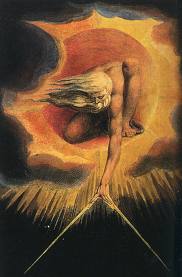“(W)hen I say “God”, it is poetry, not theology. Nothing that any theologian ever wrote about God has helped me much, but everything that poets have written about flowers, and birds, and skies, and seas, and the saviors of the race, and God — whoever that may be — has at one time or another reached my soul. The theologians gather dust upon the shelves of my library, but the poets are stained with my fingers and blotted with my tears”
John Haynes Holmes
Last evening at our Unitarian Universalist General Assembly’s Service of the Living Tradition, our annual worship service where we acknowledge the ministry of our denomination, the preacher was the Reverend Vanessa Southern, minister of the Unitarian Church in Summit, New Jersey.
She spoke of a coming age of spirit. She never quite defined what spirit was, which, in general I approve of. Some things are perceived through a glass darkly, and big things, visions for the way things are, are very much like that. We find the mystery like in the Buddha’s famous story of the elephant, only in part.
It took a while but she eventually came to the heart of her message, what our part of the elephant of spirit might be, holding up love and unity, the dynamic that holds us together (and she didn’t go there, but, also, that tears us apart), and how we are all radically, totally, completely, connected.
A variation on what I think is the saving message of Unitarian Universalism.
Worked for me.
And, I felt myself not fully connecting.
I’m sure there were many reasons. I’m exhausted from fifteen days on the road, this being the second conference back to back for me. Also, I’m a bit grumpy with our denominational leadership right now.
But, also I found myself aware of the great struggle at the liberal edge of religion, or the edges of liberal religion in our times.
Much of it turns on our relationship to God.
Ultimacy is of course the stuff of religion, of spirituality. And when the word God is used for ultimacy, we find ourselves moving very much into the light of a hazy moon.
In the West, the rich polytheisms that seem an initial human impulse to describe our encounters with that ultimacy, coalesced from one of the deities, probably a storm god, to the god of one tribe, to a god of all peoples. Also, somewhere along the line, that deity could be seen as both that big human in the sky, and as something else.
Personally, I find the evolved deity an inadequate expression of ultimacy. It projects human needs on to the universe, making God that big human. And it creates a universe with good and evil, and it makes it hard to see the deity as good. Asking why this particular child is allowed to live to be a hundred and that child to starve to death at six months, opens challenges to a god of love. If that god is supposed to have our human sense of right and wrong.
Now the universe is big. And it is lovely. And it is terrible.
And I have no problem with using the word God in another sense, as it has been from time to time in the West, to describe the fullness of it all. But this god, this god of real ultimacy contains all our human longings, along with everything else.
My concern as I saw it in the worship service last evening, was how it seemed for many among us, we can’t go all the way. Instead the God we want is the god of intervention.
And, I fear, that deity serves no good.
It becomes a path of simply painting our own face on the universe. But the paint wear thin quickly.
And hurt follows the false worship.
A world of hurt.
We stand at an interesting moment in the history of our liberal faith. We took a vacation from using that word god. We appear to be relentlessly going forward to reclaiming the word.
But, are we going to simply return to that god which makes one person happy and curses the other?
Or, are we going to allow the language of the sacred, the language of heart to point us in new directions?
The choice is in front of us. We can embrace a world where the miracle of life in all its joy and horror is in the hands of a terrible deity who reigns in heaven. Or, we can find a God that is the shape of intimacy, found when we do not turn away, when we do not project our hurt and longing, painting a face on the cosmos, but instead, let the cosmos reveal itself to our hearts, transforming us, rending the illusions of separation.
I agree with Vanessa, we are at the dawn of a new age of spirit.
But there are many spirits out there.
I sure hope we pick the right one…













